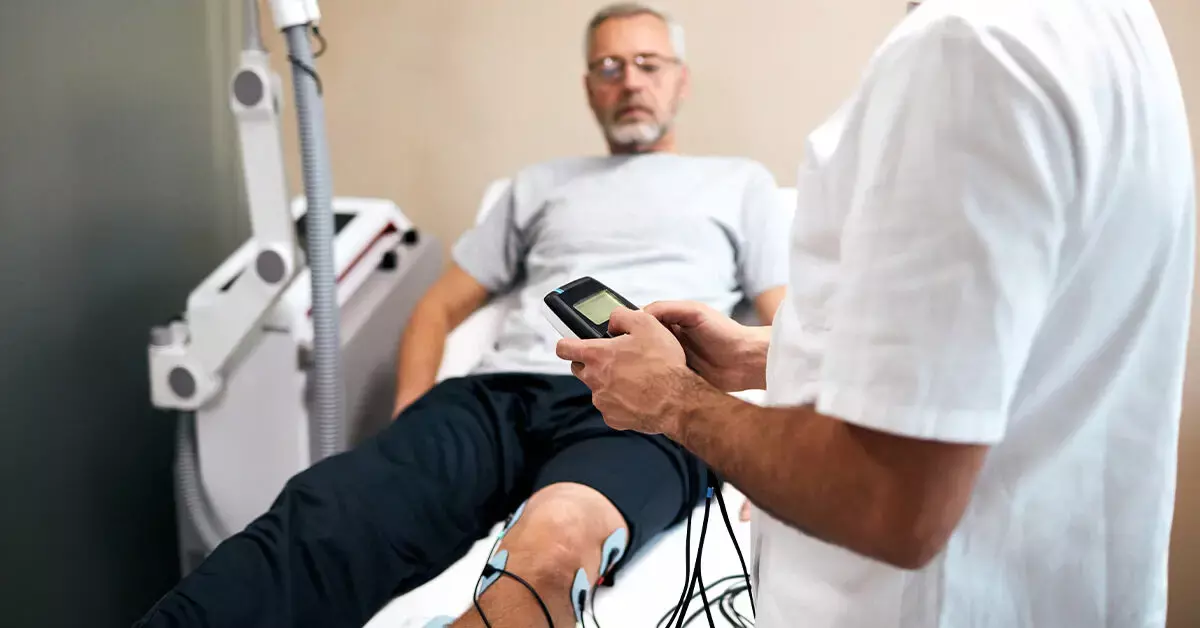- Home
- Medical news & Guidelines
- Anesthesiology
- Cardiology and CTVS
- Critical Care
- Dentistry
- Dermatology
- Diabetes and Endocrinology
- ENT
- Gastroenterology
- Medicine
- Nephrology
- Neurology
- Obstretics-Gynaecology
- Oncology
- Ophthalmology
- Orthopaedics
- Pediatrics-Neonatology
- Psychiatry
- Pulmonology
- Radiology
- Surgery
- Urology
- Laboratory Medicine
- Diet
- Nursing
- Paramedical
- Physiotherapy
- Health news
- Fact Check
- Bone Health Fact Check
- Brain Health Fact Check
- Cancer Related Fact Check
- Child Care Fact Check
- Dental and oral health fact check
- Diabetes and metabolic health fact check
- Diet and Nutrition Fact Check
- Eye and ENT Care Fact Check
- Fitness fact check
- Gut health fact check
- Heart health fact check
- Kidney health fact check
- Medical education fact check
- Men's health fact check
- Respiratory fact check
- Skin and hair care fact check
- Vaccine and Immunization fact check
- Women's health fact check
- AYUSH
- State News
- Andaman and Nicobar Islands
- Andhra Pradesh
- Arunachal Pradesh
- Assam
- Bihar
- Chandigarh
- Chattisgarh
- Dadra and Nagar Haveli
- Daman and Diu
- Delhi
- Goa
- Gujarat
- Haryana
- Himachal Pradesh
- Jammu & Kashmir
- Jharkhand
- Karnataka
- Kerala
- Ladakh
- Lakshadweep
- Madhya Pradesh
- Maharashtra
- Manipur
- Meghalaya
- Mizoram
- Nagaland
- Odisha
- Puducherry
- Punjab
- Rajasthan
- Sikkim
- Tamil Nadu
- Telangana
- Tripura
- Uttar Pradesh
- Uttrakhand
- West Bengal
- Medical Education
- Industry
Transcutaneous electrical nerve stimulation Promising Pain relief option for adults

Pain is a global health problem with negative consequences for patients, society and healthcare systems. In a recent study, researchers have found that pain intensity was lower during or immediately after administration of strong but comfortable transcutaneous electrical nerve stimulation (TENS) to painful body parts when compared with placebo. The study findings were published in the journal BMJ Open on February 10, 2022.
The debate about the efficacy of TENS has been ongoing since the 1970s, despite the publication of more than 350 RCTs.There is an absence of convincing or consistent evidence that TENS outcome is related to pathology, pain characteristics, medical diagnoses or clinical context. Therefore, Prof. Marl I. Johnson conducted a study to investigate the efficacy and safety of transcutaneous electrical nerve stimulation (TENS) for the relief of pain in adults.
In a systemic review and meta-analysis, the researchers reviewed Medline, Cochrane Central, Embase and included 381 randomized controlled trials (RCTs) comparing strong non-painful TENS at or close to the site of pain versus placebo or other treatments in adults with pain, irrespective of diagnosis. Reviewers independently screened, extracted data and assessed risk of bias (RoB, Cochrane tool) and certainty of evidence (Grading and Recommendations, Assessment, Development and Evaluation). The major outcome assessed was the changes in mean pain intensity and proportions of participants achieving reductions of pain intensity (≥30% or >50%) during or immediately after TENS. Subgroup analyses were related to trial methodology and characteristics of pain.
Key findings of the study:
- Upon analysis, the researchers found that the pain intensity was lower during or immediately after TENS compared with placebo (91 RCTs, 92 samples, n=4841, SMD=−0·96, moderate-certainty evidence).
- They noted that methodological (Eg RoB, sample size) and pain characteristics (Eg acute vs chronic, diagnosis) did not modify the effect.
- They also found that the pain intensity was lower during or immediately after TENS compared with pharmacological and non-pharmacological treatments used as part of the standard of care (61 RCTs, 61 samples, n=3155, SMD = −0·72, low-certainty evidence).
- They noted that the levels of evidence were downgraded because of small-sized trials contributing to imprecision in magnitude estimates.
- They also noted that data were limited for other outcomes including adverse events which were poorly reported, generally mild and not different to comparators.
The authors concluded, "This systematic review resolves long-term uncertainty about the efficacy of TENS. The meta-analysis provides moderate-certainty evidence that strong non-painful TENS within or close to the site of pain produces clinically important reductions in the intensity of pain during or immediately after treatment, with no reports of serious adverse events."
They further added, "Clinicians, policymakers and funders should consider TENS as an adjunct to core treatment for immediate short-term relief of pain, irrespective of diagnosis. Patients should be advised to tailor TENS treatment according to their individual needs."
For further information:
Medical Dialogues Bureau consists of a team of passionate medical/scientific writers, led by doctors and healthcare researchers. Our team efforts to bring you updated and timely news about the important happenings of the medical and healthcare sector. Our editorial team can be reached at editorial@medicaldialogues.in.
Dr Kamal Kant Kohli-MBBS, DTCD- a chest specialist with more than 30 years of practice and a flair for writing clinical articles, Dr Kamal Kant Kohli joined Medical Dialogues as a Chief Editor of Medical News. Besides writing articles, as an editor, he proofreads and verifies all the medical content published on Medical Dialogues including those coming from journals, studies,medical conferences,guidelines etc. Email: drkohli@medicaldialogues.in. Contact no. 011-43720751


